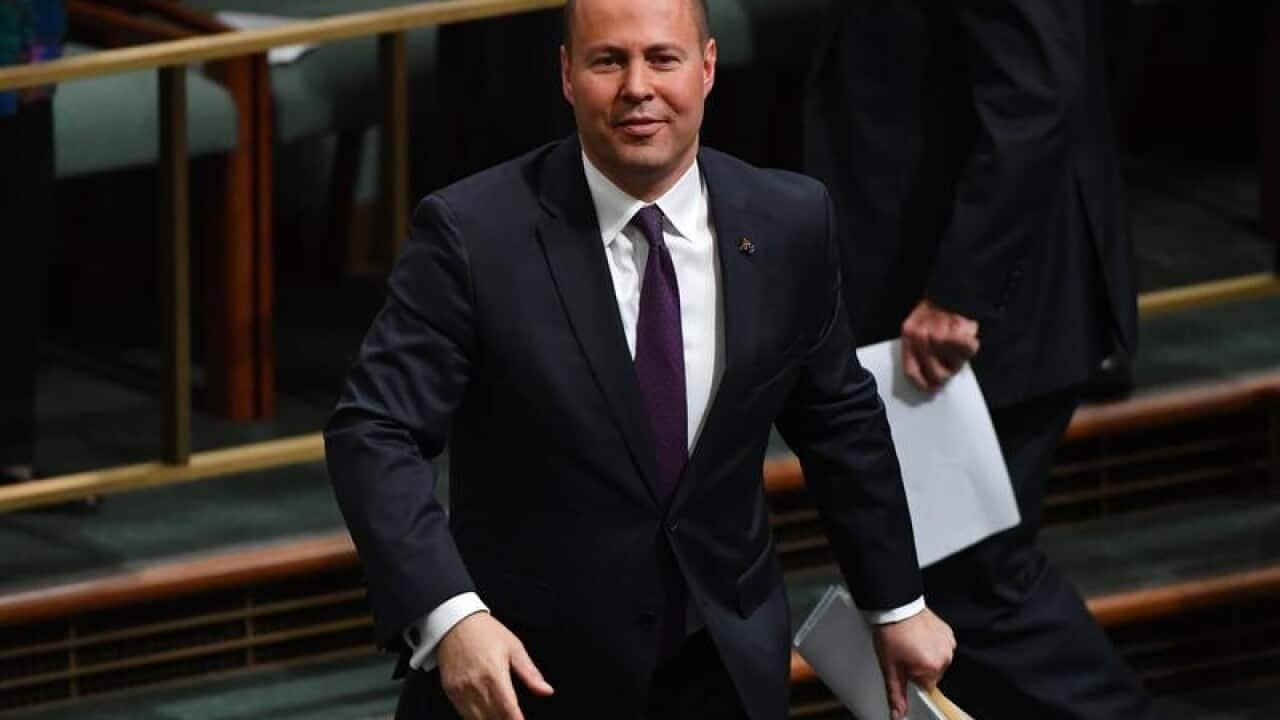Australia's budget is back in the black for the first time in 12 years, but the road to bigger surpluses could be constrained by modest economic growth against a backdrop of softer global conditions.
The prospect of a long-awaited return to surplus and an accompanying coalition promise to eliminate government debt in a decade has shored up local financial markets and business confidence.
But any cheer will be tempered by the prospect that the government may not survive past the national election to fulfil its promises, with voter polls continuing to point to a Labor win in May.
"It's worth remembering that this budget effectively represents the start of an election campaign," Australian Institute of Company Directors chief economist Mark Thirwell said.
"The pitch has been influenced by that timing and its fate will be determined by how that campaign unfolds."
The federal budget points to a string of underlying cash surpluses, kicking off with $7.1 billion in 2019/20 - the best number since the global financial crisis began to bite.
The forecast outstrips the government's own projection of $4.1 billion and is broadly less than the financial market consensus of around $8 billion.
But government expectations for the outer years have been wound back given the external economic risks, despite the prospect of strong commodity prices continuing to pump up government coffers.
"For the first time in 12 years, our nation is again paying its own way," Treasurer Josh Frydenberg told parliament in his budget speech in Canberra.
"But Australia does face some serious challenges."
Mr Frydenberg pointed to a slowing global economy, the impact of the drought, household cost of living pressures and the slow pace of wages growth.
He played up the coalition's plan to offset these factors with a stronger balance book, a massive infrastructure program and income tax cuts.
"We want Australians to have a go and to get a fair go," he said.
To be sure, Australia faces headwinds from offshore from trade tensions fuelled by China and the US, uncertainly over the outcome of the UK's Brexit and generally softer world growth.
At home, household and consumer confidence is being rocked by falling residential home prices, a downturn in building construction and anaemic wages growth since the 2008-2009 GFC.
So Treasury has maintained its conservative stance on economic growth, forecasting gross domestic product to expand by a relatively modest 2.75 per cent over the next two financial years, before rising to three per cent.
This is despite the prospect of the unemployment rate remaining around five per cent - or so-called 'full employment' - for the next four years, and few signs of inflationary pressures.
But the government has still committed to a fresh round of job creation - 1.25 million positions - over the next five years.
This will be driven by an national infrastructure building program totalling $100 billion over a decade and more than $500 million for job training, apprenticeships and payments to employers to hire a worker.
The cash surplus projections for the three years from 2020/21 have been shaved to $11 billion (versus a previous forecast of $12.5 billion), $17.8 billion ($19 billion) and $9.2 billion ($30 billion).
It should also be noted that from 2020/21, the multi-billion dollars earnings from the Future Fund to pay public service superannuation liabilities will be included in the underlying cash balance for the first time.
However, the coalition, for the first time since its election in 2013, has a better story to sell on debt repayment.
Net government debt which will total $361 billion in 2019/20 is expected to be paid down in 2029/30, "or sooner", Mr Frydenberg said.
"Only one side of politics can do this, because only one side of politics has done this," he told parliament, "...without increasing taxes."

